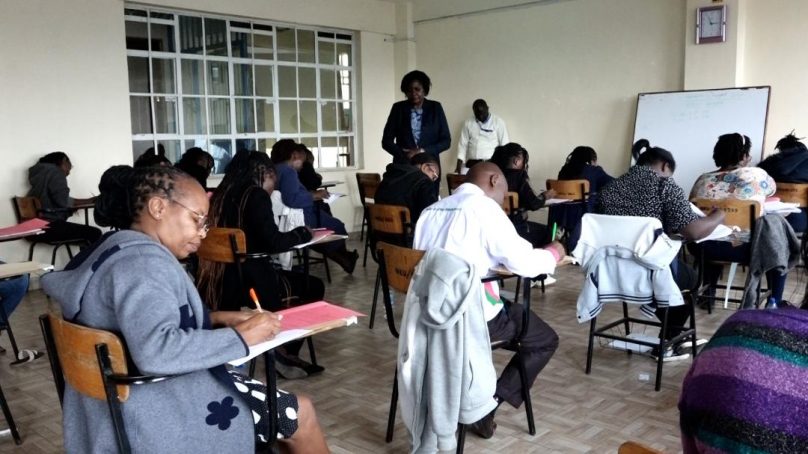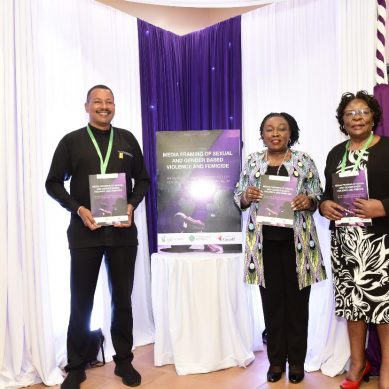
Employers have been advised to improve service delivery techniques of Human Resource Units (HRU) in their organisations through continuous training of workforce in line with emerging technological trends and changing demands of the society both locally and globally.
Human Resource Management Professionals Examinations Board (HRMPEB) now says human resource professionals in both the public and private sector need a wide range of skills, not only in talent areas but also in the understanding of how the business works, makes money and competes.
HRMPEB Chief Executive Officer Margaret Nguu noted that managing employees in a modern workplace is increasingly becoming complex and many human resource practitioners are not equipped to handle the evolving challenges, hence the need for reskilling.
Nguu explained that what this means for organisations in Kenya to compete and thrive in the marketplace, a new approach to managing their human capital would need to be adopted in order to cater for the needs of the 21st Century workforce.
Speaking at the Mount Kenya University’s Main Campus in Nakuru after overseeing more than 100 aspiring and practising human resource professionals sitting for certification examinations, the CEO affirmed that expectations of modern enlightened workforce demanded a highly professional approach.
She added that gone were the days when human resource management was principally a paperwork and administrative role responsible for assisting employees with personal problems.
“Today, human resource management is an integral part of the strategic position that an organisation assumes – inseparable from key organisational goals and market plans. As Kenya strives towards its Vision 2030 and pursues the G4 agenda, the role of certified HR professionals in all sectors becomes increasingly crucial,” Nguu says.
She indicated that how well an organisation recruits and maintains its human capital determines its success.
The Human Resource Management Professionals Examinations Board is a State Corporation established under Section 16 of the Human Resource Management Professionals Act, No. 52 of 2012. It is mandated to develop curricula, examine and certify HR professionals and is accredited by the Kenya National Qualifications Authority (KNQA) as a Qualification Awarding Authority (QAI).
Countrywide more than 1,500 aspiring and practicing human resource professionals across Kenya are sitting their certification examinations administered by the Human Resource Management Professionals Examinations Board.
The examinations, which run from August 6-13, are being conducted in major towns including Nairobi, Kisumu, Nakuru, Eldoret, Mombasa, Thika, Nyeri, Kakamega and Nanyuki.
Candidates are sitting for the Certified Human Resource Professional (CHRP) and CBET Diploma and Certificate in HR qualifications in what HRMPEB says is one of the largest coordinated HR exercises in the East and Central Africa.
Nguu observed that, by aligning with national development goals, CHRP-certified individuals contribute to organisational efficiency, talent management, and overall economic progress.
“In April, 1,400 candidates wrote the examinations while currently we are looking at over 1,500 candidates. The board will administer the examinations to a further 1,600 candidates in December bringing the total number to over 5,000. Last year we had 3,000 candidates,” she explained.
According to Nguu, the April 2025 exam series saw a marked improvement in performance across several HR technical areas, particularly in labour laws, performance management, and strategic human resource management.
“The CHRP qualification continues to grow in stature as the gold standard for HR professionals in Kenya, with growing interest from both fresh graduates and working professionals seeking structured, competency-based certification,” she noted.
The CEO pointed out that the rising numbers reflected a growing interest in professionalising HR practice and building a workforce aligned with global standards. The CHRP remains HRMPEB’s flagship programme, designed to equip HR practitioners with strategic and ethical leadership skills for evolving workplaces, she added.
Candidates sitting exams are drawn from private and institutional based. Upon achieving certification from the Board as a Human Resources Professional, individuals are formally registered in the Kenya Gazette. This official recognition signifies recognition as Certified HR Professionals.
Recognised by the Institute of Human Resource Management (IHRM), Nguu asserted that the CHRP certification was not just a testament to one’s knowledge but is among the key requirements to be registered by IHRM as a practicing HR professional.
Nguu disclosed that HRMPEB began implementing the Recognition of Prior Learning (RPL) framework to formally recognize HR practitioners’ skills gained through work and informal learning.
“We are not locking anyone out,” Nguu explained. “RPL gives you a chance to submit a portfolio of evidence, prove your competence, and get assessed without sitting formal exams.”
This alternative aims to include long-serving HR officers who may not be able to return to a classroom but possess a wealth of practical knowledge and experience. She pointed out that effective human resource management (HRM) optimises an organisation’s workforce, enhancing productivity and ultimately contributing to profitability.
HRM practices, she added, help attract and retain talent, develop employees, foster a positive work environment and ensure compliance with labour laws and regulations, mitigating legal risks associated with hiring and managing employees. The CEO warned human resource officers serving without certification saying they risked being struck off.
“We are giving notice: if you’re not certified and not a member of the professional body, you will soon find yourself locked out of practice,” Nguu said.
Her remarks underscore a new momentum behind a proposed law currently before Parliament, the Public Service Human Resource Bill, which, if passed, would make it illegal for uncertified individuals to hold HR positions in both public and private institutions.
The move comes on the back increasing concern over how some county governments have been employing unqualified HR personnel, with critics saying the trend undermines professionalism and exposes public institutions to inefficiency and legal risk.
“We want the HR profession to be as respected as law or medicine,” Nguu added. “It’s time we upheld professional standards. No more political appointees with no background in HR.”
Currently, Kenya has over 20,000 registered HR practitioners, but only 3,713 are certified under the Certified Human Resource Professional, Kenya (CHRP-K) programme.
The CEO also emphasized that while certification helps, many HR professionals still face outdated perceptions in the workplace, especially within the public sector.
“Some employers still think HR is just paperwork. They don’t understand strategic HR. That’s why we must start from the top, sensitising senior leaders and pushing awareness of what certified HR can really do.”
With a bill in parliament, a growing pool of certified professionals and a regulatory body keen on enforcing standards, HRMPEB says the future belongs to those who are willing to professionalise, comply and grow.
“It’s not about gatekeeping,” Nguu said. “It’s about building credibility, protecting institutions and elevating the HR profession to what it truly should be, strategic, ethical and respected.”
She stated that HRMPEB’s certification process is rooted in the need to remain relevant, responsive and supportive of continuous professional development.
The Board’s recent reforms, including exam digitisation, curriculum alignment with modern HR practices, and now the phased certification model, are part of a broader transformation agenda to align HR practice with global standards.
- A Tell Media / KNA report / By Anne Mwale and Dennis Rasto







